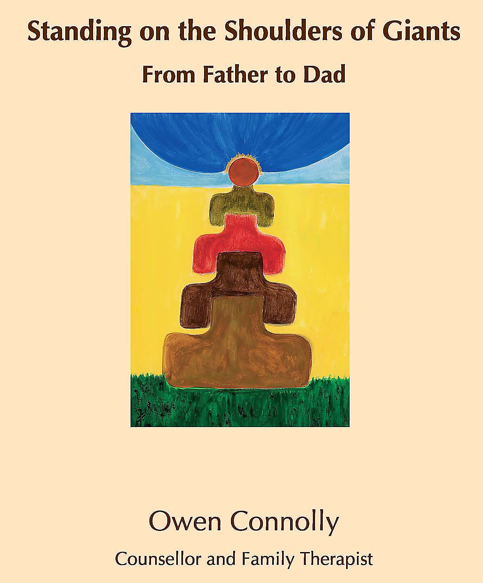Preparing Young Children for School
It’s Thursday again, and an opportunity to share some more from Owen Connolly’s book for fathers “Standing on the Shoulders of Giants.” This week we are staying in Section Two: The Parenting of Small Children, to discuss a topic that may be foremost on the minds of many parents as they look towards the start of the new school year in a few weeks time. If you have missed the previous posts on this topic, you may want to start with the introduction post here or click on the Category on the right to see all the relevant posts so far.
WHAT SHOULD PARENTS WATCH OUT FOR AS THEIR YOUNG CHILDREN PREPARE TO START SCHOOL? 
In Ireland, unlike other parts of Europe, it is quite common for boys and girls to start school at the age of four. By that age, an Irish child may have had playschool or Montessori or something similar – all of which have levels of benefit for the child – but studies have shown that he or she is not developmentally ready to begin the type of learning that most schools require. And what’s more, boys and girls develop and learn differently, so they will each struggle in different ways.
Let’s take the boy as an example. There are two hemispheres of the brain, and for young boys, communication between the two hemispheres is very narrow. This causes young boys to focus on the left side of their brain, and means that the way they see the world is very linear. Because most boys process information in a linear way, they find lateral processing much more difficult, and lateral processing is what is involved in reading, writing and spelling. As a result, many young boys struggle with reading, writing, and spelling, and resist doing work on them at this early stage, because they find such work so difficult. Their resistance can cause trouble for them with teachers and parents, all of which can make school a source of trouble for the child in the home. Moving into the future, such a boy may carry a belief with him that he is no good at reading, writing and spelling, and that belief – based on a child’s conviction that “If I feel it, it must be true” – will negatively affect his life long into adulthood. If that boy were to start reading and writing later – at say seven or eight, when lateral processing becomes a bit easier for boys – he’d be in a much better position to start learning those skills.
Young girls, in contrast to boys, have difficulty with the linear processing because they are much more lateral in their thinking. They are what scientists call “bridge-brained” – in other words, the left and right hemispheres of their brains communicate very well with each other due to the fact that their connection is wider. As a result of this, reading, writing and spelling are much easier for a young girl than for a young boy. Her difficulty with linear thinking, however, means that she may find addition, subtraction and other maths very difficult, and will often beat herself up emotionally over it. She’ll interpret – again with a child’s emotional reasoning – that she’s no good at maths, and that’s why we see so many adult women today who really believe that they’re no good at maths. I believe we have lost a whole nation of woman who could do very well at the sciences just because early on they decide that they are no good at mathematics. (When taken into account with the men whose hand-writing skills might become a barrier to producing the kind of essays required to pass exams – due to the fact that examiners cannot read their work – we see why there is such an imbalance in certain fields between the sexes.) These women would be much better off if they were started on mathematics at age seven or so, when linear processing becomes a bit easier for them.
There are other conditions that may cause the boys or girls to have learning difficulties, including infantile Post-Traumatic Stress Disorder (iPTSD), which we discussed earlier.
Because boys and girls learn so differently and have different struggles, research has shown it is of greater benefit for them to go to single-sex schools, where their different approaches to learning can be catered for and where there is no temptation to compare boys with girls. It’s not a good idea to compare, for instance, your four-year-old son with your daughter when she becomes four. They’ll have different ways of approaching tasks and different natural obstacles to learning. This might have been the case with you. If you found that you did not write or spell or add or subtract as well as your brother or sister, you might have gone on to dislike these subjects – that is, unless or until you had a teacher whom you liked and who helped you to overcome those fears.
